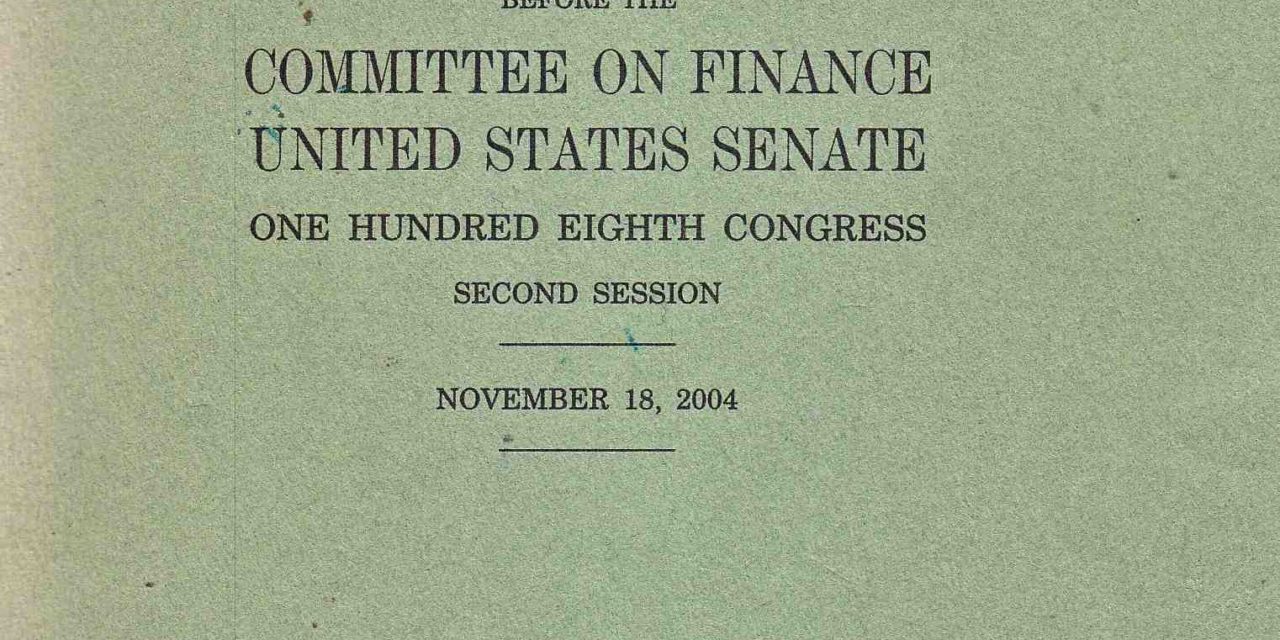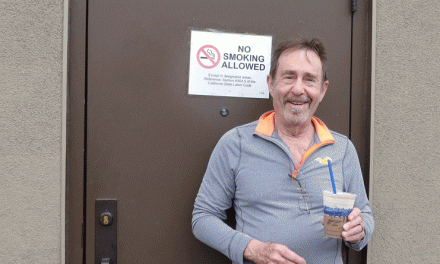By Fred Gardner
One of the most downplayed stories of our time ended with a whimper this week. “Merck has agreed to pay $950 million and has pleaded guilty to a criminal charge over the marketing and sales of the painkiller Vioxx,” the New York Times reported Nov. 23 (in the business section, where important medical news is usually found). The pharmaceutical giant copped to a misdemeanor: urging MDs to prescribe Vioxx for Rheumatoid Arthritis prior to 2002, when the Food & Drug Administration approved its use for that disorder.
The FDA had initially approved Vioxx (after a hasty “priority review”) in May, 1999 to treat osteoarthritis, acute pain, and menstrual cramps. By September 30, 2004, when Merck announced its “voluntary recall,” more than 20 million Americans had been prescribed the widely hyped drug. Evidence that using Vioxx doubled a patient’s risk of suffering a heart attack or stroke —based on a review of 1.4 million patients’ records— was about to be published in Lancet by David Graham, MD, an FDA investigator. The FDA director’s office, devoted valet of Big PhRMA, had contacted theLancet in a futile effort to stop publication of their own scientist’s findings.
Graham’s data indicate that 140,000 Americans suffered Vioxx-induced heart attacks and strokes; 55,000 died, and many more were permanently disabled. The Merck executives’ real crime was conspiracy to commit murder.
Some 3,000 Americans died in the attack on the World Trade Center. The murders perpetrated by Merck executives were not as dramatic, obviously, but were every bit as intentional. An early clinical trial had alerted them to the fact that Vioxx caused coronary damage. Their response was to exclude from future trials anyone with a history of heart trouble!
Once Vioxx was approved, Merck spent more than $100 million a year advertising it. (You may still remember the tune to “It’s a beautiful morning…”) Merck execs continued to ignore and suppress indications that their new blockbuster was causing strokes and heart attacks. Sales hit $2.5 billion in 2003. And when brave Dr. Graham first presented his irrefragable evidence to an FDA advisory committee in February 2004, Merck argued that the “unique benefits” of Vioxx warranted its remaining on the market. The FDA committee voted 17-15 to keep it available with a black box warning. Ten of the 32 committee members had taken money from Merck, Pfizer or Novartis (which were pushing drugs similar to Vioxx) as consultants. If these MDs had declared their conflicts of interest, Vioxx would have been pulled from the market by a vote of 14-8. By buying an extra seven and a half months, Merck made an extra billion or two, and killed 6,000 more Americans.
Worldwide, Vioxx was used by 80 million people. Assuming their dosages were similar to the 1.4 million Kaiser Permanente patients whose records Dr. Graham analyzed, the death toll exceeds 165,000.
The great selling point to doctors —and the original rationale for developing “Cox-2 inhibitors” such as Vioxx and Celebrex— was their supposed safety compared to aspirin and other non-steroidal anti-inflammatories such as ibuprofen (Motrin, Advil) and naproxen (Aleve), which can cause gastrointestinal bleeding and peptic ulcers in some people. (There was no evidence that Cox-2 inhibitors were more effective than NSAIDs at reducing pain and inflammation.)
The NSAIDs work by inhibiting production of an enzyme, Cyclooxygenase, that helps make compounds called prostaglandins that facilitate the inflammatory response and protect the stomach lining (among other functions). In the 1980s a researcher named Philip Needleman discovered that the body makes Cyclooxygenase in two forms —Cox-1, found in normal tissue, and Cox-2, which is more prevalent in damaged tissues associated with arthritis. The drug companies hoped that a compound that inhibited only Cox-2 production would reduce inflammation without gastric side effects. With 40 million Americans suffering from some form of Arthritis, an easier-on-the-stomach painkiller would mean blockbuster sales. And so they invested hundreds of millions of dollars in the ’90s developing compounds that would inhibit Cox-2 production, and arranging clinical trials to convince the FDA that such drugs were an improvement over the existing alternatives.
And now a word from our sponsor
If Cannabis and Cannabis-based medicines had been among the alternatives, the market for Vioxx et al would have been much smaller. (And if codeine wasn’t semi-prohibited, the market would have been smaller still.) How many drugs would lose significant market share if Cannabis-based options were available? Enough so that the pharmaceutical industry would quickly follow the housing sector down the drain. Which is why Wall Street cannot allow legalization of the plant for medical use.
It may turn out that a cannabinoid produced by the plant, cannabidiol (CBD), exerts its anti-inflammatory effects by means of Cox-2 inhibition. A recent study shows that Cox-2 plays a role in breaking down one of the cannabinoids produced by the body, 2-AG. The breakdown product is a precursor to neuroinflammatory prostaglandins.
Let the punishment fit the crime
In 2007 Merck paid out $4.85 billion to settle claims by 27,000 Vioxx victims and their survivors. “The reason ‘so few’ people filed lawsuits,” a physician explains, “is that there is a significant background rate of heart attack. People may not have recognized their event as being related to Vioxx.” The survivors of people who smoked cigarettes, were overweight or had other risk factors would have been discouraged by lawyers from filing claims, he added, because they’d have a hard time convincing jurors that their loved ones’ heart attacks were brought on by Vioxx use.
“No person was held liable for Merck’s conduct,” Duff Wilson of the Times reported Nov. 23. To be fair-and-balanced in an otherwise Merck-friendly story, he quoted Erik Gordon of the University of Michigan’s Ross School of Business, commenting “It’s just a cost of doing business until a pharmaceutical executive does a perp walk.”
That sounds tough but it isn’t. Marketing dangerous drugs would still be “just a cost of doing business” to profit-driven corporations if a few individual execs were made to do time at Camp Fed. Why shouldn’t they be charged with conspiracy to commit murder, along with every accessory to the crime that a thorough investigation could identify? (This could provide meaningful work for the currently useless Drug Enforcement Administration.) The Vioxx conspiracy involved researchers who skewed data and sales execs who framed false pitches and government officials who tried to silence whistleblowers and God knows who else… If somebody is killed in a botched robbery at a Seven Eleven, the kid driving the getaway car is charged with homicide. But Merck’s CEO throughout the Vioxx era, Ray Gilmartin, left the company in 2006 with a golden parachute and joined the Harvard Business School faculty. The class he teaches is called “Building and Sustaining Successful Enterprises.”
A more effective way to counter deadly corporate fraud would be for the government to simply stop doing business with entities convicted of major crimes. If MediCare and state Medicaid programs stopped buying Merck or Pfizer drugs for, say, five years, it just might produce the result that we, the people, require.
The day before the Vioxx settlement was reported, the Wall St. Journal ran a story (in the Marketplace section) under the headline “Pfizer Near Settlement on Bribery.” The corporate boo-boo in this instance involved pay-offs to doctors who purchase drugs for state-owned institutions overseas. Johnson & Johnson recently settled a similar bribery case. Merck, AstraZeneca, Bristol-Myers Squibb, and GlaxoSmithKline are all in settlement negotiations with the government.
On the home front, Pfizer has paid $2.3 billion for violating the federal False Claims Act and bribing institutional purchasers in connection with Bextra, Lipitor, Viagra, Zithromax, Norvasc, Lyrica, Relpax, Celebrex, and Depo-provera.
The systemic corruption is getting worse. In the 15 years between 1991 and 2005, according to Public Citizen, drug companies paid the government $5 billion in penalties and settlements in connection with kickbacks and false claims. In the five years between 2006 and 2010 the pay out was $14.8 billion. Four companies accounted for more than half the blood money ($10.3 billion): Glaxo, Pfizer, Eli Lilly, and Schering-Plough.
In recent years the drug industry has surpassed the “defense” industry as the top defrauder of the federal government under the False Claims Act.
Where is zero tolerance when we need it?
Fred Gardner edits O’Shaughnessy’s, the journal of cannabis in clinical practice. Gardner is a contributor to Hopeless: Barack Obama and the Politics of Illusion, forthcoming from AK Press. He can be reached at fred@plebesite.com





